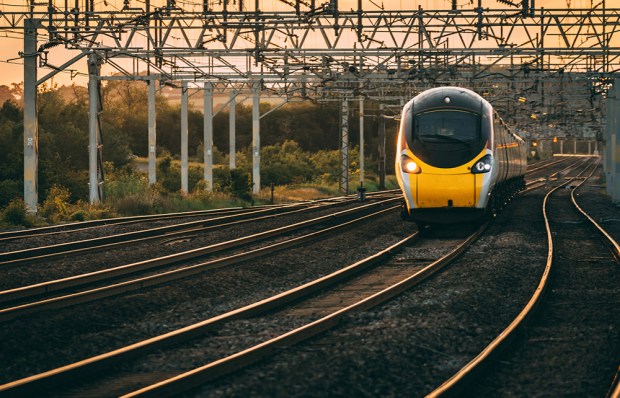Haworth is in a constant simmer of Brontë anniversary fever. It is looking forward to Emily Brontë’s 200th birthday next year. (This year is poor old Branwell’s.) I can’t think of a book title more widely mispronounced than Wuthering Heights. Soft, effete southerners pronounce it with a short u. But the wuthering in the title is a good Yorkshire word and its first vowel must be pronounced like the vowel in good.
Yet if you look up wuthering in the big fat Oxford English Dictionary, you’ll find it under whither, the main English form deriving from the Old English hwitha. Emily Brontë should perhaps have called her novel Whithering Heights, though that would have led to more confusion among southerners who less often aspirate initial wh, and would have made whithering sound like withering (as in remarks).
The Anglo-Saxons had borrowed the word from the Norsemen, and it remained in use in Viking-struck parts of Britain: Northumberland, Durham, Lancashire, Cumberland, Westmorland and Yorkshire — and Scotland, which employs a northern English dialect.
In his energetic Scots translation of the Aeneid from 1513, Gavin Douglas spelled whither as quhidder. Towards the end of the poem, in the scene where Aeneas’s spear flies through the air and goes through the thigh of Turnus, Douglas takes the image of a siege engine hurling a stone: ‘Nevir sa swiftlie, quhidderand the stane flaw / Swakkit [hurled] from the ingyne unto the wall’ as the spear flew. There, quhidderand is something like ‘whizzing’.
In modern Scotland the name whitherspale was given to a device, often used as a child’s toy, consisting of a notched slat of wood, attached to a string by which it is whirled round, producing a booming sound. In England this is called a bullroarer or whizzer. In England, whithering continued to bear a portfolio of everyday meanings: the noise of people lumbering up and down stairs, an outburst of laughter, the noise made by a hare starting from her den or the tremulous sensation of the proximity of a railway train. But none of this historical tangle of connotations is suggested in Kate Bush’s Kentish voice declaring: ‘I’m coming home to wuthering, wuthering, Wuthering Heights.’
Got something to add? Join the discussion and comment below.
Get 10 issues for just $10
Subscribe to The Spectator Australia today for the next 10 magazine issues, plus full online access, for just $10.
You might disagree with half of it, but you’ll enjoy reading all of it. Try your first month for free, then just $2 a week for the remainder of your first year.














Comments
Don't miss out
Join the conversation with other Spectator Australia readers. Subscribe to leave a comment.
SUBSCRIBEAlready a subscriber? Log in